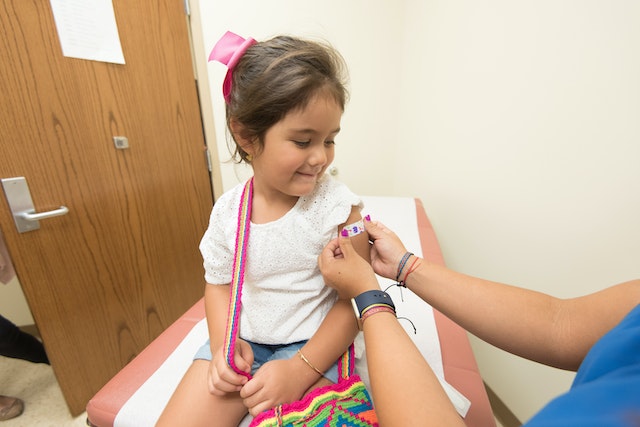I. Introduction
With each passing year, the importance of vaccinations and regular check-ups becomes increasingly evident in the realm of public health. The impact of these preventative measures cannot be overstated, as they play a vital role in safeguarding individuals and communities against a multitude of diseases. Vaccinations are powerful tools that stimulate the immune system to recognize and fight off specific infections, thereby preventing the spread of communicable diseases. From the eradication of smallpox to the control of polio and the significant reduction in measles cases, vaccines have proven their efficacy time and time again. In parallel, regular check-ups serve as crucial opportunities for early detection and prevention of various ailments. These routine medical examinations allow healthcare professionals to identify potential health risks, detect diseases at their nascent stages when treatment options are most effective, and monitor key health indicators to ensure proactive management. In this paper, we will explore the significance of vaccinations and regular check-ups as essential components of preventive healthcare, highlighting their profound impact on both individual and community well-being.
II. The Role of Vaccinations in Disease Prevention
Vaccinations stand as one of the most powerful tools in the fight against infectious diseases. By introducing harmless components of pathogens or weakened forms of the disease-causing agents into the body, vaccines stimulate the immune system to develop a defense mechanism against future encounters with the actual pathogens. The benefits of vaccinations extend far beyond individual protection. They have been instrumental in the eradication of diseases that were once widespread, such as smallpox, and have significantly reduced the incidence of others like polio and measles. Vaccines also contribute to the concept of herd immunity, whereby a high percentage of individuals within a population are immunized, effectively preventing the spread of diseases to vulnerable individuals who cannot receive vaccines due to medical reasons. This herd immunity creates a protective barrier, limiting the transmission of diseases and safeguarding entire communities. Moreover, vaccinations offer substantial personal health benefits by reducing the risk of severe illness, complications, and long-term health consequences associated with infectious diseases. By embracing vaccinations, individuals can actively participate in the prevention of diseases, promoting their own well-being and contributing to the overall health of society.
III. Regular Check-ups for Early Detection and Prevention
Regular check-ups play a pivotal role in maintaining optimal health and well-being. These routine medical examinations provide valuable opportunities for early detection and prevention of various diseases. Through screenings and tests, healthcare professionals can identify potential health risks and detect diseases at their early stages when treatment options are most effective. For instance, regular check-ups may include screenings for cancers, such as mammograms for breast cancer or colonoscopies for colorectal cancer, allowing for early detection and intervention. By identifying diseases in their early stages, individuals have a higher chance of successful treatment outcomes and can often avoid more invasive and costly procedures. Additionally, regular check-ups enable healthcare providers to monitor key health indicators such as blood pressure, cholesterol levels, and body mass index. This proactive monitoring allows for timely interventions and lifestyle modifications to prevent the progression of diseases, such as cardiovascular conditions or diabetes. Regular check-ups not only focus on disease detection but also promote overall health and well-being by addressing preventive measures such as immunizations, counseling on healthy lifestyle choices, and discussing age-specific screenings. By prioritizing regular check-ups, individuals can actively engage in preventive care, taking charge of their health and increasing the likelihood of early intervention and better health outcomes.
IV. Overcoming Vaccine Hesitancy and Barriers to Regular Check-ups
While vaccinations and regular check-ups are crucial for disease prevention, there are obstacles that need to be addressed to ensure their widespread adoption. Vaccine hesitancy, fueled by misinformation and misconceptions, poses a significant challenge. To overcome this, education and information dissemination are paramount. Providing accurate and accessible information about vaccines, their safety, and their effectiveness is essential in addressing concerns and dispelling myths. It is important to emphasize the rigorous testing and monitoring processes that vaccines undergo to ensure their safety and efficacy.
In addition to vaccine hesitancy, barriers to regular check-ups must be addressed. Access to healthcare remains a significant obstacle for many individuals. Financial barriers, lack of health insurance, and limited transportation options can prevent individuals from seeking regular medical care. Addressing these barriers requires collaborative efforts from healthcare providers, policymakers, and community organizations. Initiatives such as expanding healthcare coverage, implementing mobile clinics or telehealth services, and increasing awareness about available resources can help overcome these access barriers.
Furthermore, it is crucial to address health disparities that disproportionately affect marginalized communities. Social determinants of health, such as socioeconomic status, race, and ethnicity, can influence healthcare utilization and create disparities in access to preventive care. To ensure equal access to vaccinations and regular check-ups, it is necessary to address systemic inequalities, promote health equity, and tailor outreach efforts to reach underserved populations. By addressing vaccine hesitancy and removing barriers to regular check-ups, we can foster a more inclusive and accessible healthcare system that prioritizes preventive care for all individuals, regardless of their background or circumstances.
V. Conclusion
In conclusion, the importance of vaccinations and regular check-ups in disease prevention and overall health cannot be overstated. Vaccinations are powerful tools that not only protect individuals from infectious diseases but also contribute to the broader concept of herd immunity, safeguarding vulnerable populations and preventing the spread of diseases within communities. Regular check-ups play a crucial role in early detection and prevention by enabling healthcare professionals to identify potential health risks, detect diseases at their early stages, and monitor key health indicators. Through proactive interventions and lifestyle modifications, individuals can mitigate the progression of diseases and improve health outcomes.
However, to fully realize the benefits of vaccinations and regular check-ups, we must address vaccine hesitancy and barriers to access. Education and accurate information are crucial in dispelling misconceptions surrounding vaccines and reinforcing their safety and effectiveness. Additionally, improving healthcare accessibility, reducing financial barriers, and addressing health disparities are essential to ensure that individuals from all backgrounds have equal opportunities for preventive care.
Prevention truly is key. By prioritizing vaccinations and scheduling regular check-ups, individuals can take proactive steps towards their own health and contribute to the well-being of their communities. Let us embrace the power of prevention, recognizing that through collective efforts and a commitment to equitable healthcare, we can build a healthier and safer future for all.
The information provided in this text is for informational purposes only and should not be considered as medical advice or a substitute for professional medical guidance, diagnosis, or treatment. While efforts have been made to ensure the accuracy and reliability of the information presented, we strongly recommend consulting with a qualified healthcare professional or medical practitioner regarding any medical concerns or questions you may have. Each individual’s medical situation is unique, and medical recommendations may vary based on specific circumstances. We disclaim any liability for decisions made based on the information provided in this text.

